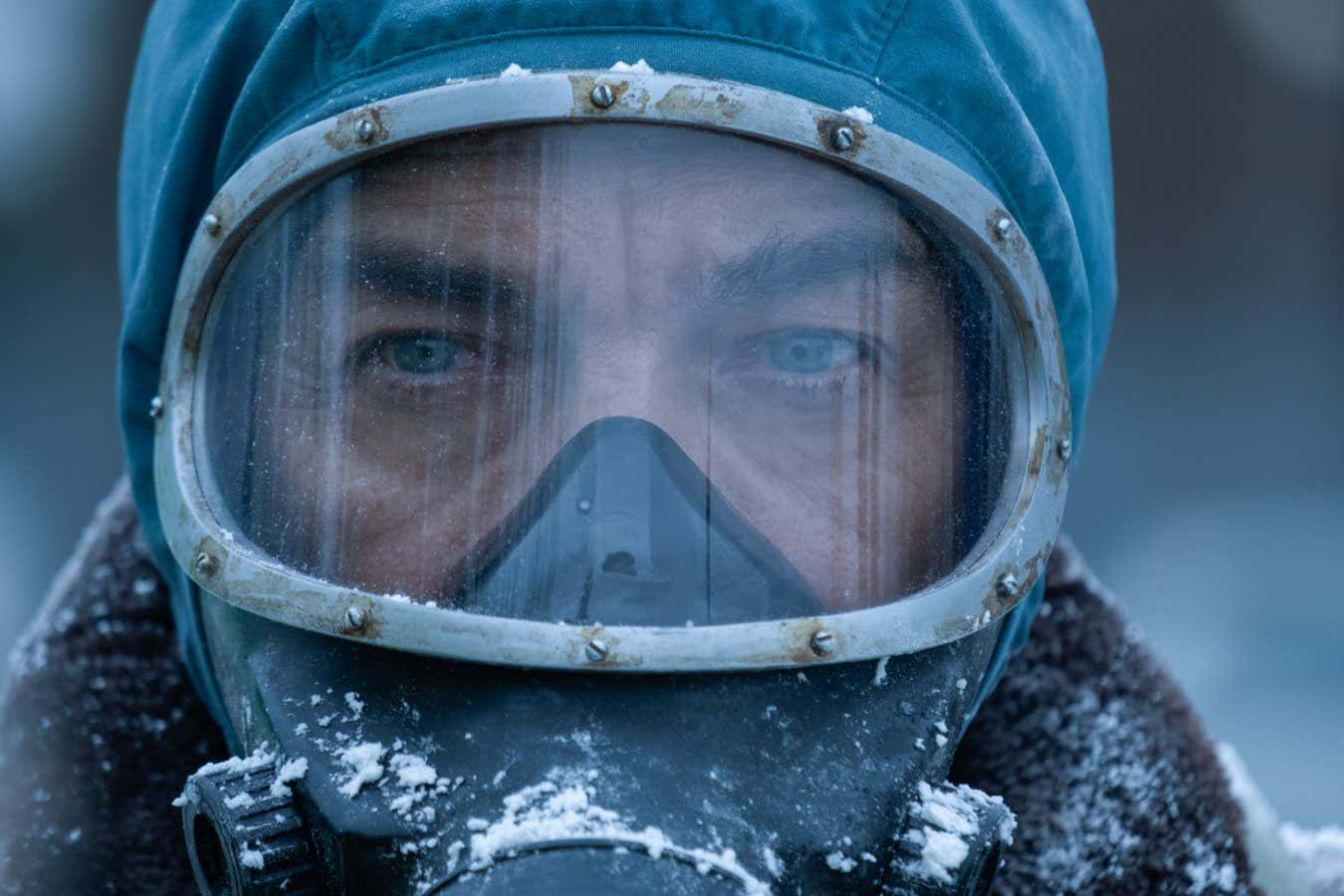Comment
There are hundreds of TV apocalypses to choose from, but The Eternaut, a fresh and compelling adaptation of a classic Argentinian comic book series, is the one to pick, says Bethan Ackerley

Juan Salvo (Ricardo Darín) braves the killer snow in Buenos Aires
Mariano Landet/Netflix
The Eternaut
Netflix
To make good art, you must be specific. Perhaps that is too sweeping a statement – and so rather contradictory – but it is a fundamental principle I live by. It is no good chasing the lowest common denominator in the hope of attracting an audience. Whether it is a song, a painting or a poem, it is the specificities that we latch on to and fall in love with.
This may be why, with hundreds of TV apocalypses out there, The Eternaut is such a breath of fresh air. The new Netflix show adapts a classic comic book series written by Héctor Germán Oesterheld that was published in 1957 and much adored in his home of Argentina.
It also includes themes from a reboot of the story in 1969 that reflected Oesterheld’s increasingly anti-imperialist views. It is a narrative steeped in real-world violence and paranoia that marked the rise of military dictatorship in Argentina, and it isn’t nearly as well-known globally as it should be.
On a sweltering summer night in Buenos Aires, Juan Salvo (Ricardo Darín) and his friends gather in a basement to play the card game truco. Laughs are shared and whisky is drunk – until a mysterious flurry of snow blankets the city. This is strange enough considering it has only snowed in Buenos Aires three times in recorded history, but the falling flakes kill everyone they touch almost instantly.
Trapped inside, Juan has no idea whether his ex-wife Elena (Carla Peterson) and daughter Clara (Mora Fisz) are alive. He dons a waterproof suit and gas mask, then takes to the streets. Those left behind debate whether to share dwindling resources with fellow survivors, as their neighbourhood grows increasingly panicked.
This is a narrative steeped in real-world violence and paranoia, and it isn’t as well-known as it should be
I haven’t read the original comic, as it is difficult to get hold of in the UK, so I can’t comment on how faithfully it has been adapted. What I can say is that the changes made to fit a modern setting work well, such as Juan’s backstory as a soldier in the Falklands war between the UK and Argentina in 1982. His military experience makes him a natural leader for the survivors, but his unresolved trauma may feed into strange visions he experiences.
The plot of The Eternaut may seem similar to those of many post-apocalyptic dramas; that is in no small part due to its enormous influence on this subgenre. But this Spanish-language series still feels fresh because it keeps its Argentinian-ness, rather than relocating the drama to the well-worn streets of New York or London. It is all the better for retaining that specificity, from the architectural to the political.
I knew shamefully little about the history of Argentina before starting the series, nor was I aware that Oesterheld and four of his daughters, two of whom were pregnant, were disappeared by the country’s military dictatorship in 1977. The success of the new series has prompted a renewed search for his missing grandchildren, who are likely to have been given to other families as babies. All this sad history makes for a beautifully layered adaptation that feels richer than most of its contemporaries.
There are a few flaws in The Eternaut: the first three episodes are too slow a burn, while the female characters don’t have much to do. But this is a compelling survival drama that becomes more complex in its second half. And here is one final bonus: having been such a sleeper hit for Netflix, it has already been renewed for a second season.
Bethan also recommends…
The Mist
Directed by Frank Darabont
When a mist falls on the town of Bridgton, residents must stay inside or face a deadly threat. This Stephen King adaptation deviates from its source with a new ending – and what an ending
I’m Still Here
Directed by Walter Salles
Eternaut comic book writer Héctor Germán Oesterheld’s widow Elsa Sánchez sought justice for deaths linked to Argentina’s military junta. Her story is similar to Eunice Paiva’s, told in this stunning film, whose husband was killed by Brazil’s dictatorship.
Bethan Ackerley is a subeditor at New Scientist. She loves sci-fi, sitcoms and anything spooky. Follow her on X @inkerley

The art and science of writing science fiction
Take your science fiction writing into a new dimension during this weekend devoted to building new worlds and new works of art
Topics:
























